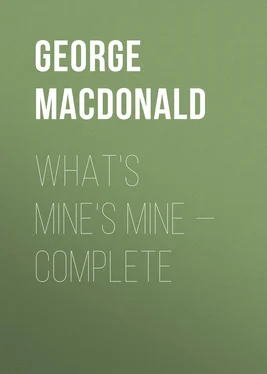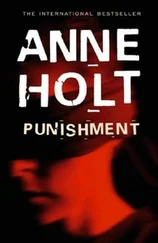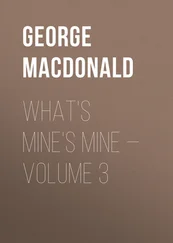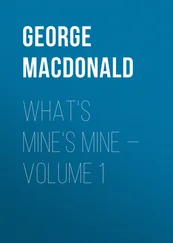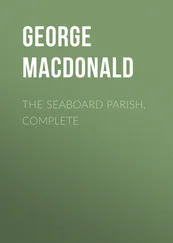George MacDonald - What's Mine's Mine — Complete
Здесь есть возможность читать онлайн «George MacDonald - What's Mine's Mine — Complete» — ознакомительный отрывок электронной книги совершенно бесплатно, а после прочтения отрывка купить полную версию. В некоторых случаях можно слушать аудио, скачать через торрент в формате fb2 и присутствует краткое содержание. Издательство: Иностранный паблик, Жанр: foreign_prose, foreign_religion, foreign_antique, на английском языке. Описание произведения, (предисловие) а так же отзывы посетителей доступны на портале библиотеки ЛибКат.
- Название:What's Mine's Mine — Complete
- Автор:
- Издательство:Иностранный паблик
- Жанр:
- Год:неизвестен
- ISBN:нет данных
- Рейтинг книги:5 / 5. Голосов: 1
-
Избранное:Добавить в избранное
- Отзывы:
-
Ваша оценка:
- 100
- 1
- 2
- 3
- 4
- 5
What's Mine's Mine — Complete: краткое содержание, описание и аннотация
Предлагаем к чтению аннотацию, описание, краткое содержание или предисловие (зависит от того, что написал сам автор книги «What's Mine's Mine — Complete»). Если вы не нашли необходимую информацию о книге — напишите в комментариях, мы постараемся отыскать её.
What's Mine's Mine — Complete — читать онлайн ознакомительный отрывок
Ниже представлен текст книги, разбитый по страницам. Система сохранения места последней прочитанной страницы, позволяет с удобством читать онлайн бесплатно книгу «What's Mine's Mine — Complete», без необходимости каждый раз заново искать на чём Вы остановились. Поставьте закладку, и сможете в любой момент перейти на страницу, на которой закончили чтение.
Интервал:
Закладка:
The laird retired to the humble cottage of his brother the pastor, just married rather late in life—where every comfort love could give waited for him; but the thought that he could have done better for his people by retaining the land soon wore him out; and having made a certain disposition of the purchase-money, he died.
What remained of the property came to the minister. As for the chieftainship, that had almost died before the chief; but, reviving by union with the reverence felt for the minister, it took thereafter a higher form. When the minister died, the idea of it transmitted to his son was of a peculiarly sacred character; while in the eyes of the people, the authority of the chief and the influence of the minister seemed to meet reborn in Alister notwithstanding his youth. In himself he was much beloved, and in love the blessed rule, blessed where understood, holds, that to him that hath shall be given, he only who has being fit to receive. The love the people bore to his father, both pastor and chief, crowned head and heart of Alister. Scarce man or woman of the poor remnant of the clan did not love the young Macruadh.
On his side was true response. With a renewed and renovating conscience, and a vivid sense that all things had to be made new, he possessed an old strong heart, clinging first to his father and mother, and then to the shadow even of any good thing that had come floating down the ages. Call it a dream, a wild ideal, a foolish fancy—call it what you please, he was filled with the notion of doing something in his own person and family, having the remnant of the clan for the nucleus of his endeavour, to restore to a vital reality, let it be of smallest extent, that most ancient of governments, the patriarchal, which, all around, had rotted into the feudal, in its turn rapidly disintegrating into the mere dust and ashes of the kingdom of the dead, over which Mammon reigns supreme. There may have been youthful presumption and some folly in the notion, but it sprang neither from presumption nor folly, but from simple humanity, and his sense of the responsibility he neither could nor would avoid, as the person upon whom had devolved the headship, however shadowy, of a house, ruinous indeed, but not yet razed.
The castle on the ridge stood the symbol of the family condition. It had, however, been a ruin much longer than any one alive could remember. Alister's uncle had lived in a house on the spot where Mr. Peregrine Palmer's now stood; the man who bought it had pulled it down to build that which Mr. Palmer had since enlarged. It was but a humble affair—a great cottage in stone, much in the style of that in which the young chief now lived—only six times the size, with the one feature indispensable to the notion of a chief's residence, a large hall. Some would say it was but a huge kitchen; but it was the sacred place of the house, in which served the angel of hospitality. THERE was always plenty to eat and drink for any comer, whether he had "claim" or not: the question of claim where was need, was not thought of. When the old house had to make room for the new, the staves of the last of its half-pipes of claret, one of which used always to stand on tap amidst the peat-smoke, yielded its final ministration to humanity by serving to cook a few meals for mason and carpenter.
The property of Clanruadh, for it was regarded as clan-property BECAUSE belonging to the chief, stretched in old time away out of sight in all directions—nobody, in several, could tell exactly how far, for the undrawn boundary lines lay in regions of mist and cloud, in regions stony, rocky, desert, to which a red deer, not to say a stray sheep, rarely ascended. At one time it took in a portion at least of every hill to be seen from the spot where stood the ruin. The chief had now but a small farm, consisting of some fair soil on the slope of a hill, and some very good in the valley on both sides of the burn; with a hill-pasture that was not worth measuring in acres, for it abounded in rocks, and was prolific in heather and ling, with patches of coarse grass here and there, and some extent of good high-valley grass, to which the small black cattle and black-faced sheep were driven in summer. Beyond periodical burnings of the heather, this uplifted portion received no attention save from the mist, the snow, the rain, the sun, and the sweet air. A few grouse and black game bred on it, and many mountain-hares, with martens, wild cats, and other VERMIN. But so tender of life was the Macruadh that, though he did not spare these last, he did not like killing even a fox or a hooded crow, and never shot a bird for sport, or would let another shoot one, though the poorest would now and then beg a bird or two from him, sure of having their request. It seemed to him as if the creatures were almost a part of his clan, of which also he had to take care against a greedy world. But as the deer and the birds ranged where they would, it was not much he could do for them—as little almost as for the men and women that had gone over the sea, and were lost to their country in Canada.
Regret, and not any murmur, stirred the mind of Alister Macruadh when he thought of the change that had passed on all things around him. He had been too well taught for grumbling—least of all at what was plainly the will of the Supreme—inasmuch as, however man might be to blame, the thing was there. Personal regrets he had none beyond those of family feeling and transmitted SENTIMENT. He was able to understand something of the signs of the times, and saw that nothing could bring back the old way—saw that nothing comes back—at least in the same form; saw that there had been much that ought not to come back, and that, if patriarchal ways were ever to return, they must rise out of, and be administered upon loftier principles—must begin afresh, and be wrought out afresh from the bosom of a new Abraham, capable of so bringing up his children that a new development of the one natural system, of government should be possible with and through them. Perhaps even now, in the new country to which so many of his people were gone, some shadowy reappearance of the old fashion might have begun to take shape on a higher level, with loftier aims, and in circumstances holding out fewer temptations to the evils of the past!
Alister could not, at his years, have generated such thoughts but for the wisdom that had gone before him—first the large-minded speculation of his father, who was capable even of discarding his prejudices where he saw they might mislead him; and next, the response of his mother to the same: she was the only one who entirely understood her husband. Isobel Macruadh was a woman of real thinking-power. Her sons being but boys when their father died, she at once took the part of mediator between the mind of the father and that of his sons; and besides guiding them on the same principles, often told them things their father had said, and talked with them of things they had heard him say.
One of the chief lessons he left them wrought well for the casting out of all with which the feudal system had debased the patriarchal; and the poverty shared with the clan had powerfully helped: it was spoken against the growing talionic regard of human relations—that, namely, the conditions of a bargain fulfilled on both sides, all is fulfilled between the bargaining parties.
"In the possibility of any bargain," he had said, "are involved eternal conditions: there is relationship—there is brotherhood. Even to give with a denial of claim, to be kind under protest, is an injury, is charity without the love, is salt without the saltness. If we spent our lives in charity we should never overtake neglected claims—claims neglected from the very beginning of the relations of men. If a man say, 'I have not been unjust; I owed the man nothing;' he sides with Death—says with the typical murderer, 'Am I my brother's keeper?' builds the tombs of those his fathers slew."
Читать дальшеИнтервал:
Закладка:
Похожие книги на «What's Mine's Mine — Complete»
Представляем Вашему вниманию похожие книги на «What's Mine's Mine — Complete» списком для выбора. Мы отобрали схожую по названию и смыслу литературу в надежде предоставить читателям больше вариантов отыскать новые, интересные, ещё непрочитанные произведения.
Обсуждение, отзывы о книге «What's Mine's Mine — Complete» и просто собственные мнения читателей. Оставьте ваши комментарии, напишите, что Вы думаете о произведении, его смысле или главных героях. Укажите что конкретно понравилось, а что нет, и почему Вы так считаете.
